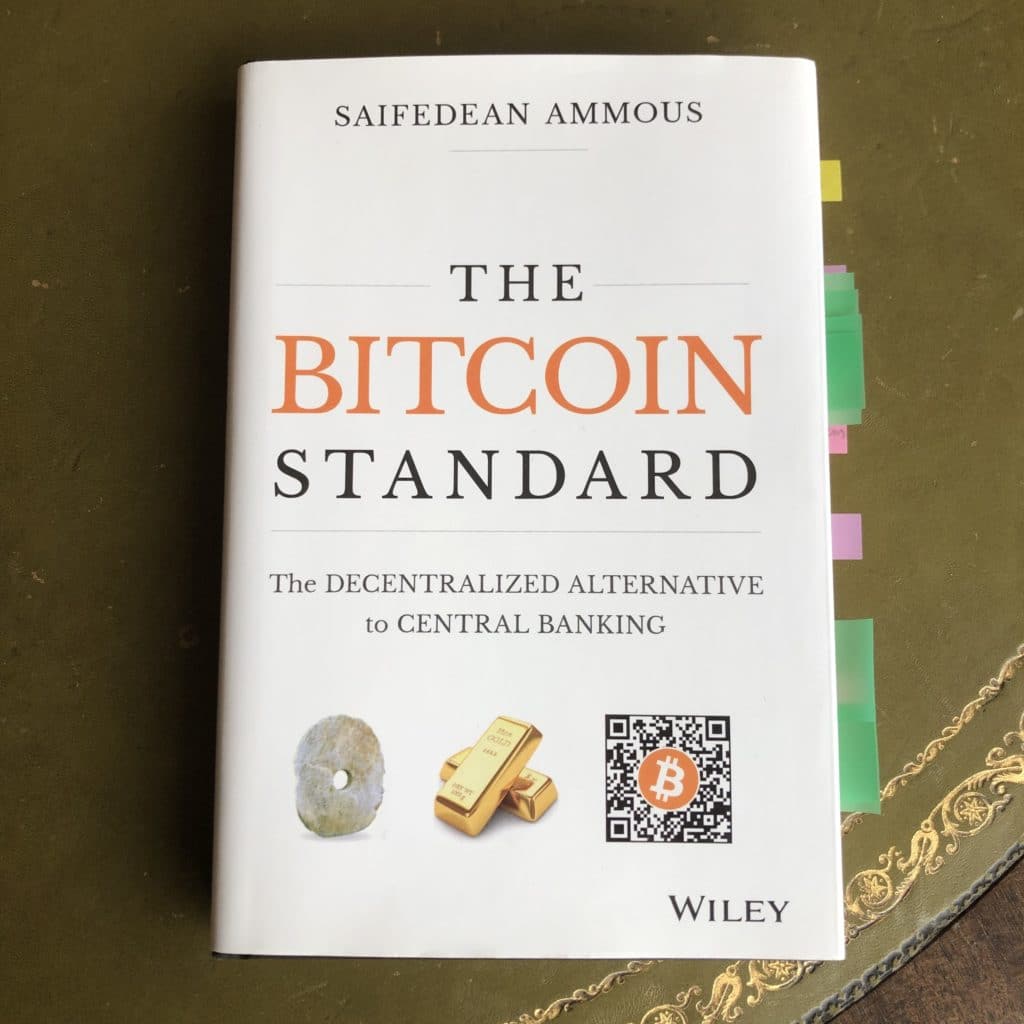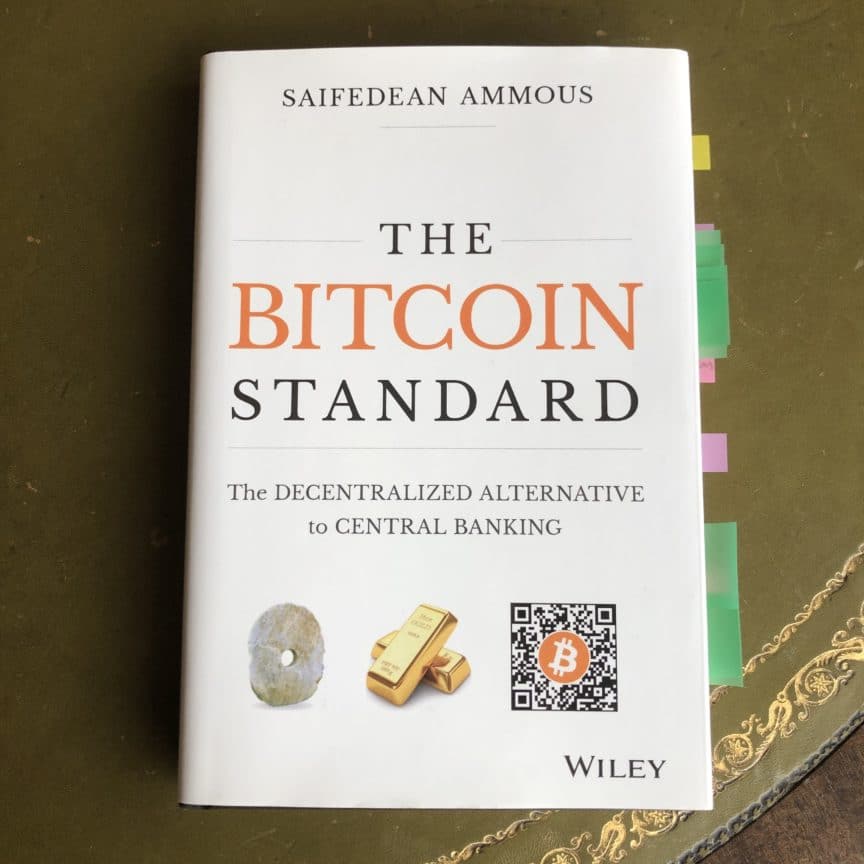
Bitcoin is a subject that is often misunderstood. This misunderstanding is rooted in the fact that bitcoin is a multifaceted new technology at the intersection of computer science and monetary economic theory. Therefore, in order to fully grasp bitcoin’s fundamental value proposition, one must acquire a solid understanding of how bitcoin functions at a technical level, as well as become knowledgeable about monetary history and Austrian monetary economic theory. Failure to understand both of these dimensions will inevitably lead to a fundamental misunderstanding of bitcoin’s true purpose and antifragility, as evidenced by the inability of many mainstream Keynesian economists to explain bitcoin’s enormous growth in just 10 years time and the many market participants who have attempted haphazardly to emulate bitcoin’s success by launching alternative cryptocurrencies.
The Bitcoin Standard shines a light on bitcoin’s value proposition from a monetary economic perspective. This book is an essential read to understand why bitcoin can be considered an incredible robust store of value, similar to physical gold, by juxtaposing bitcoin’s properties to our current financial system, which is built upon pure fiat currencies governed by central banks. The book provides the reader with an easy to understand introduction to monetary history and the Austrian school of economics and is seemingly able to show how this relates to bitcoin. Moreover, the Bitcoin Standard sets forth some truly unique dimensions about money and bitcoin, such as the concept of ‘human time preference‘, offering the reader distinctive points of view he/she will not find in any other book about bitcoin. The book is incredibly well researched and contains many valuable references to supporting economic literature, which also makes it a great starting point for anyone who is looking to take a deep dive into the Austrian school of economics.
Non-exhaustive overview of elements that are covered in the book The Bitcoin Standard:
- The book begins by defining what money is and the functions that a good needs to fulfil to be considered money.
- After setting out what constitutes money, the following few chapters are dedicated to providing the reader with an introduction to monetary history, from the first primitive forms of money to the monetary metals and, finally, the current government fiat currencies.
- The book goes in-depth in explaining the concept of sound money and the role that gold has played throughout history as a form of sound money. Particular elements in this regard which are analyzed by the author are the concepts of salability of a good and the stock-to-flow ratio of a good.
- One of the major themes in the book is the influence that sound money has on the time preference of individuals and on civilization as a whole.
- The book puts forward the merits of capitalism, built upon a sound money foundation, as the proper mechanism for the allocation of capital goods, as opposed to socialism.
- The author provides a non-technical explanation of what bitcoin is from a monetary economic perspective, and puts forward why bitcoin is arguably the hardest form of money ever created by mankind.
- A central thread throughout the book is the merits of the Austrian school of economics as the right framework for a monetary economic theory, as opposed to the current mainstream Keynesian economics.
- The book ends with a chapter of frequently asked bitcoin questions regarding, amongst others, bitcoin mining, bitcoin’s antifragility, bitcoin’s scalability, etc.
Elements that are not covered in the book The Bitcoin Standard:
The book does not explore in detail how bitcoin works from a technical computer science perspective.
As such, it might be difficult for a reader with no technical knowledge about bitcoin to understand why bitcoin is to be considered a “digital object that is verifiably scarce“.
Therefore, in addition to The Bitcoin Standard, we would recommend to anyone who’s looking to gain a technical understanding of bitcoin to read the book Mastering Bitcoin from author Andreas M. Antonopoulos. We have reviewed said book here.
Major takeaways from the book The Bitcoin Standard (non-exhaustive):
- It is the market (and not the government) who freely decides which good(s) is to be considered money, based on that good’s properties. Savers who are free to choose a medium of exchange will gravitate towards assets that hold value over time as monetary assets (i.e. assets that are sound/hard money).
- For a good to be able to function properly as sound money, it needs to have the following properties: (1) high salability across space, time and scales, (2) the good needs to be scarce and (3) the good needs to have a high stock-to-flow ratio.
- A good which is adopted by the market as money performs 3 functions: (1) medium of exchange, (2) store of value, (3) unit of account.
- Bitcoin is endowed with all the properties necessary to make it sound money. In fact, bitcoin is unique in the sense that it is the only known asset which has a fixed supply (i.e. max 21 MM bitcoins), making it arguably the hardest money in the world. Therefore, it is more likely than not that the market will gradually choose bitcoin as sound money over any other (traditional) forms of money (including fiat currencies).
- Notwithstanding the invention of many alternative cryptocurrencies to bitcoin, one can expect network effects to ensure that bitcoin is likely to remain and will continue to grow as the dominant cryptocurrency going forward. Network effects dictate that because the gains from joining a network grow exponentially the larger the size of the network, the largest network (in casu, the bitcoin network) will have an insurmountable advantage vis-à-vis smaller networks.
- The security of bitcoin lies in the asymmetry between the cost of solving the proof-of-work necessary to commit a transaction to the ledger and the cost of verifying its validity.
- In accordance with Austrian economics, any quantity of economic transactions could be supported by a money supply of any size as long as the units are divisible enough. This means that bitcoin’s fixed supply of maximum 21 million bitcoins, each bitcoin divisible by 8 decimal places, could serve as the foundation of an entire new financial system (i.e. a digital gold standard).
- In a world with a fixed money supply (e.g. bitcoin) the only noncriminal way to acquire money would be to produce something of value, which others are willing to exchange for money.
- Sound money is a prime factor in determining an individual’s time preference (i.e. the ratio at which an individual values the present compared to the future). The more sound money is, the lower an individual’s time preference. The lower an individual’s time preference, the more likely that individual will accumulate capital goods, as opposed to consumption goods, benefiting society as a whole.
Conclusion
We are of the opinion that The Bitcoin Standard is an an absolute must read when it comes to gaining a fundamental understanding of bitcoin. In case you haven’t read the book, we guarantee that you have not yet acquired the full picture that is needed for understanding bitcoin’s value.
If you’re interested in reading the The Bitcoin Standard, you can find the best deals on the Amazon website here.
In our opinion, the Bitcoin Standard works in perfect tandem with the book Mastering Bitcoin from author Andreas M. Antonopoulos, which teaches the reader in-depth about how bitcoin works from a technical computer science perspective. Take a look at our review of Mastering Bitcoin here.
These 2 mentioned books will provide the reader with a full picture of bitcoin, giving the reader the ability to understand why bitcoin acts as a store of value and why bitcoin is likely to continue to grow undeterred over time.
Click Here To View This Book On Amazon
Attention! Do you store your cryptocurrencies on an online platform? Please note, in that case you are not the actual owner of your cryptocurrencies!
In particular, you run the risk of losing all your cryptocurrencies, without any recourse, in the event that the online platform or your personal account falls victim to hacking or in the event of an unexpected closure (e.g. insolvency) of the online platform.
Protect yourself against hacking and take real ownership of your cryptocurrencies by storing your cryptocurrencies offline on your very own Trezor hardware wallet. Don’t wait before it’s too late and take immediate action now!
Click on the ‘Buy Now’ button below to buy a Trezor wallet from the official Trezor website.


